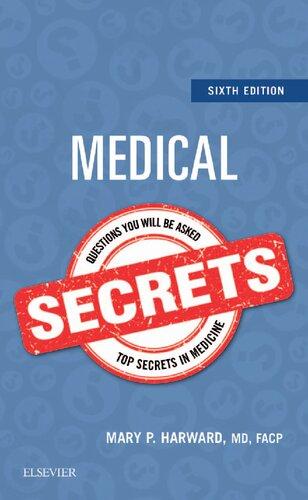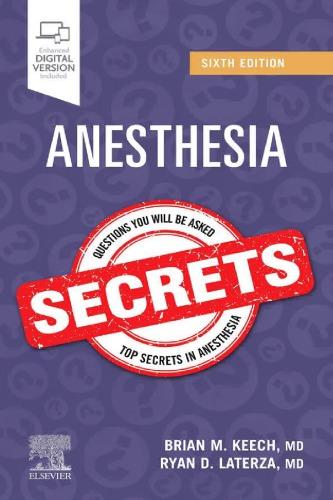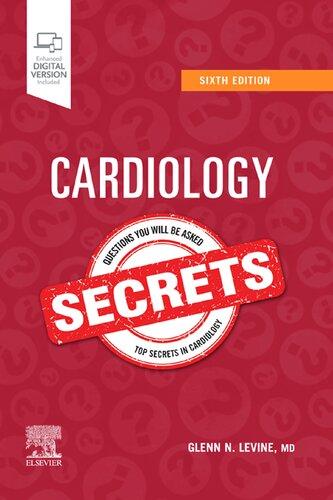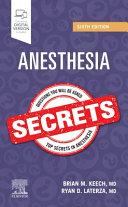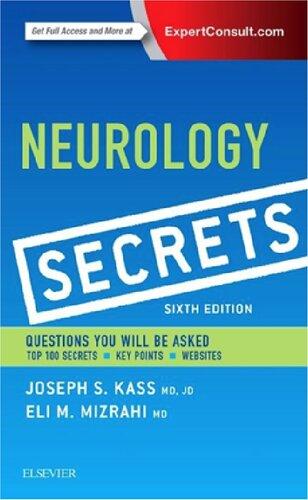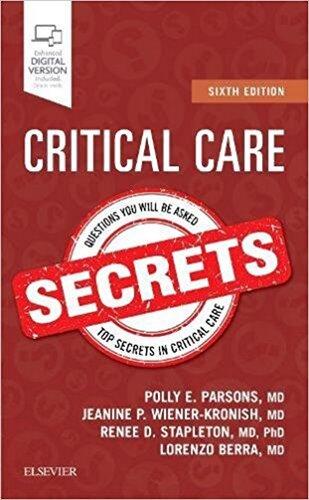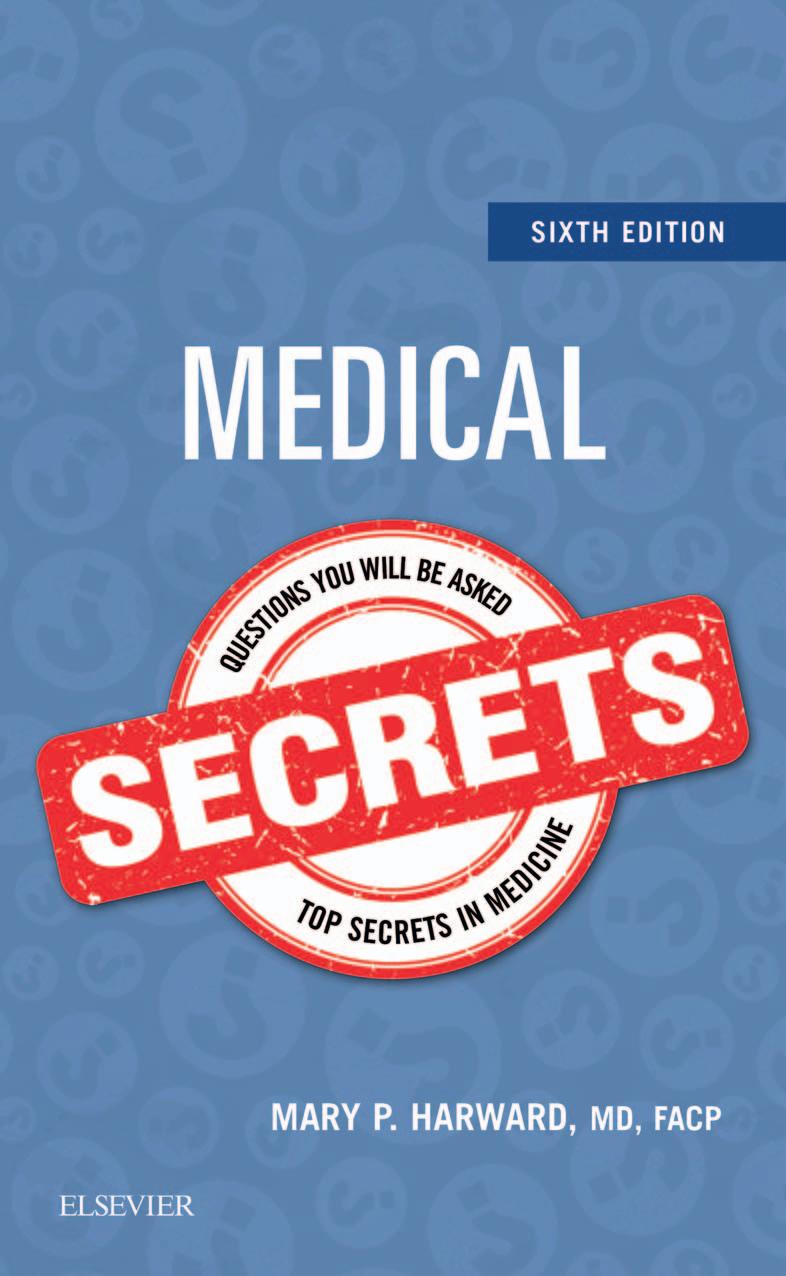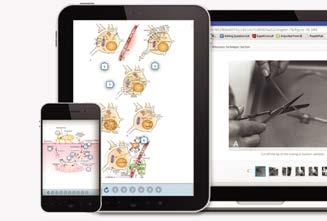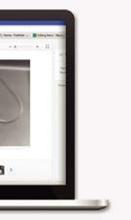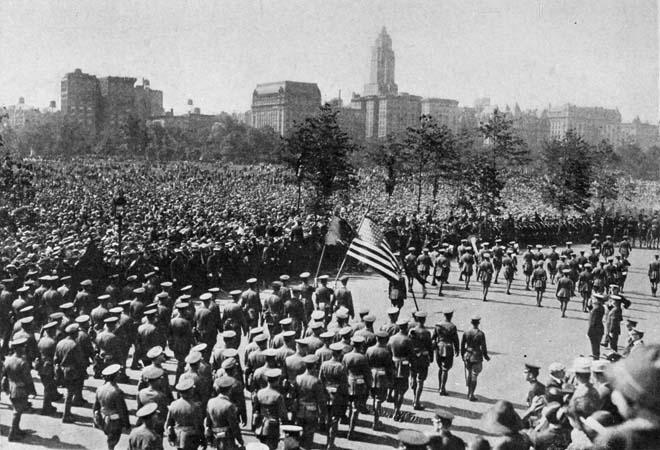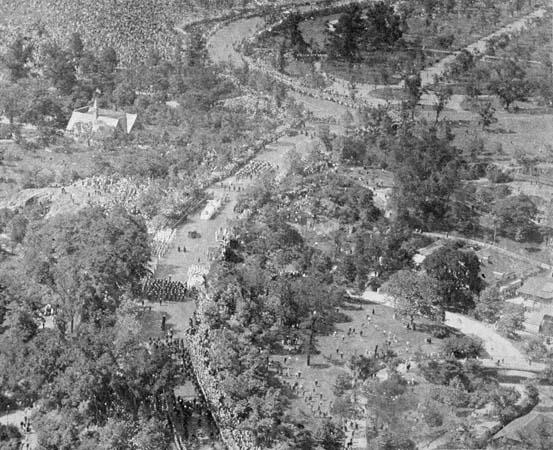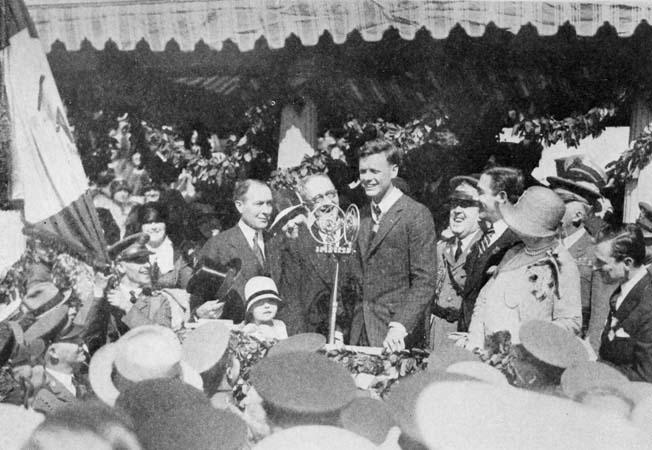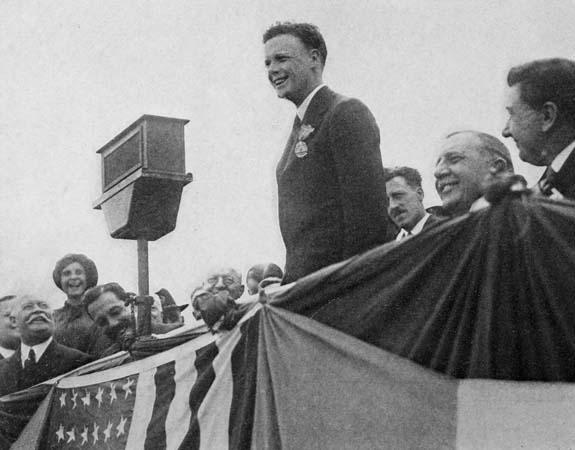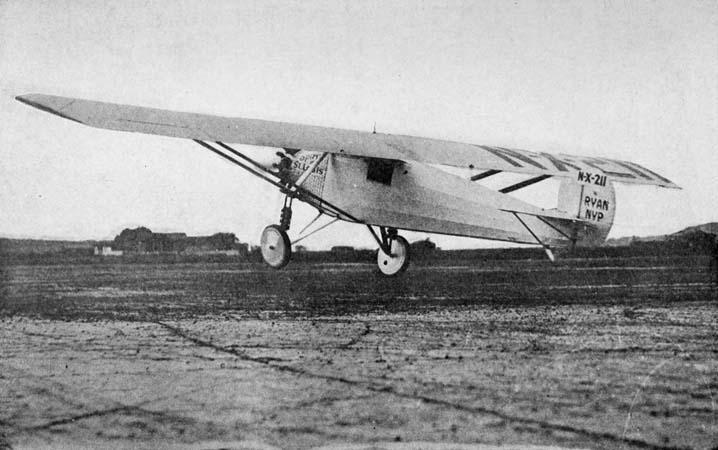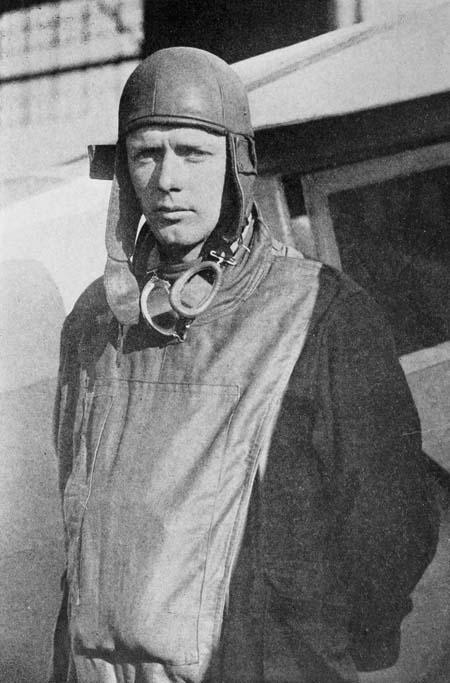CONTRIBUTORS
William L. Allen, M. Div, JD
Associate Professor
Department of Community Health and Family Medicine Program in Bioethics, Law, and Medical Professionalism
University of Florida College of Medicine Gainesville, Florida
Katherine Vogel Anderson, PharmD, BCACP
Associate Professor
University of Florida College of Pharmacy and Medicine Gainesville, Florida
Rhonda A. Cole, MD, FACG
Associate Section Chief Department of Gastroenterology
Associate Professor Department of Internal Medicine
Baylor College of Medicine Houston, Texas
Kathryn H. Dao, MD, FACP, FACR
Associate Director of Clinical Rheumatology
Baylor Research Institute Dallas, Texas
Nathan A. Gray, MD
Assistant Professor of Medicine
Division of General Internal Medicine
Duke University School of Medicine Durham, North Carolina
Gabriel Habib, Sr., MS, MD, FACC, FCCP, FAHA Professor of Medicine and Cardiology
Baylor College of Medicine Director of Education and Associate Chief Section of Cardiology
Michael E. DeBakey VA Medical Center Houston, Texas
Eloise M. Harman, MD
Staff Physician and MICU Director Malcom Randall VA Medical Center Professor Emeritus of Medicine
University of Florida College of Medicine Gainesville, Florida
Mary P. Harward, MD, FACP
Internal Medicine and Geriatrics Orange, California
Timothy R.S. Harward, MD, FACS
Vascular and Interventional Specialists of Orange County Orange, California
Teresa G. Hayes, MD, PhD
Associate Professor Department of Internal Medicine
Hematology-Oncology Section
Baylor College of Medicine
Chief
Hematology-Oncology Section
Michael E. DeBakey VA Medical Center Houston, Texas
Nisreen Husain, MD Director
GI Motility Department of Gastroenterology
Baylor College of Medicine Houston, Texas
Ankita Kadakia, MD
Assistant Professor of Clinical Medicine Division of Infectious Diseases
University of California San Diego Medical Center – Owen Clinic San Diego, California
Henrique Elias Kallas, MD, CMD
Assistant Professor Departments of Medicine and Aging University of Florida College of Medicine Gainesville, Florida
Alexander S. Kim, MD Assistant Professor of Medicine Associate Program Director Allergy/Immunology Fellowship Program University of California, San Diego San Diego, California
Roger Kornu, MD, FACR Affiliated Physician University of California, Irvine Irvine, California
R. Anjali Kumbla, MD Department of Hematology/Oncology
The Southeast Permanente Medical Group Athens, Georgia
Daniel Lee, MD
Clinical Professor of Medicine Division of Infectious Diseases
University of California San Diego Medical Center—Owen Clinic San Diego, California
Harrinarine Madhosingh, MD, FACP, FIDSA
Attending Physician
Infectious Disease
Central Florida Infectious Disease Specialists
Assistant Professor Department of Medicine
University of Central Florida Orlando, Florida
Ara Metjian, MD
Assistant Professor Division of Hematology Department of Medicine
Duke University School of Medicine Durham, North Carolina
John Meuleman, MD
Geriatric Research, Education, and Clinical Center
University of Florida College of Medicine
Gainesville, Florida
Jeffrey M. Miller, MD Chief
Division of Hematology/Oncology Program Director
Hematology/Oncology Fellowship
Olive View—UCLA Medical Center
Cedars Sinai Medical Center
Kaiser Sunset
Associate Clinical Professor of Medicine
David Geffen School of Medicine at UCLA Olive View UCLA Medical Center Los Angeles, California
Yamini Natarajan, MD
Assistant Professor Department of Gastroenterology
Baylor College of Medicine
Michael E. DeBakey VA Medical Center Houston, Texas
Catalina Orozco, MD
Rheumatology Associates Dallas Texas
Rahul K. Patel, MD, FACP, FACR Medical Director
PRA Health Sciences Dallas, Texas
Sharma S. Prabhakar, MD, MBA, FACP, FASN Professor and Chief Division of Nephrology
Vice-Chair Department of Medicine
Texas Tech University Health Sciences Center
Lubbock, Texas
Nila S. Radhakrishnan, MD
Assistant Professor and Chief Division of Hospital Medicine Department of Medicine
University of Florida College of Medicine Gainesville, Florida
Eric I. Rosenberg, MD, MSPH, FACP
Associate Professor and Chief Division of General Internal Medicine
Department of Medicine
University of Florida College of Medicine
Associate Chief Medical Officer University of Florida Health Shands Hospitals Gainesville, Florida
Abbas Shahmohammadi, MD
Assistant Professor Division of Pulmonary and Critical Care Medicine Department of Medicine University of Florida College of Medicine Gainesville, Florida
Damian Silbermins, MD Huntington Internal Medicine Group Huntington, West Virginia
Amy M. Sitapati, MD
Clinical Professor of Medicine
Chief Medical Information Officer of Population Health University of California San Diego Health San Diego, California
David B. Sommer, MD, MPH
Neurology, Movement Disorders Reliant Medical Group Worcester, Massachusetts
Susan E. Spratt, MD
Associate Professor Division of Endocrinology Department of Medicine
Duke University School of Medicine Durham, North Carolina
Adriano R. Tonelli, MD
Assistant Professor Division of Pulmonary, Allergy, and Critical Care Medicine
Case Western Reserve University School of Medicine Cleveland, Ohio
Whitney W. Woodmansee, MD Endocrinology Mayo Clinic—Jacksonville Jacksonville, Florida
Jason A. Webb, MD, FAPA Director of Education Duke Center for Palliative Care
Assistant Professor Department of Medicine
Department of Psychiatry and Behavioral Sciences
Duke University School of Medicine Durham, North Carolina
PREFACE
Most of my post-training professional life has been concurrent with the six editions of this book, and I have seen astounding scientific and therapeutic changes with each new update of Medical Secrets. The chapters in the sixth edition reflect the many major changes in medical science, prevention, and therapy that have occurred since the book was first published in 1991. For instance, in the first edition the mortality rate from Acquired Immunodeficiency Syndrome (AIDS) was cited as 75% at 3 years, and treatment of AIDS as a chronic disease was not discussed. The sixth edition now notes the 36.9 million people living with Human Immunodeficiency Virus (HIV) and AIDS and includes questions on preventive treatments. Elsewhere, the Gastroenterology chapter contrasts the lack of even screening tests for hepatitis C in 1991 with questions on contemporary effective methods for hepatitis C treatment in 2018. Similar contrasts can be found in all the chapters. Also noteworthy are the chapters added to later editions on Medical Ethics and Palliative Medicine, acknowledging the increased presence of these disciplines in everyday medical practice.
The contributor list has also significantly changed since the first edition with new contributors to this edition adding their fresh perspectives. In addition, Drs. Cole, Habib, and Prabhaker deserve special recognition for faithfully updating their chapters from the first through the sixth editions.
I hope the students using this book will appreciate and acknowledge the perspectives in the previous editions, yet sense how quickly medicine adapts to new discoveries. Many of the quotes at the beginning of the chapters reflect the historical context of the disciplines and hopefully may prompt the reader to investigate the original sources. Perhaps some of the students reading the text today will be future contributors and remember how medicine was practiced “back during the time of the sixth edition.”
Mary P. Harward, MD, FACP Orange, California
This page intentionally left blank
CONTENTS
TOP 100 SECRETS 1
CHAPTER 1 MEDICAL ETHICS 5
William L. Allen, M Div, JD
CHAPTER 2 GENERAL MEDICINE AND AMBULATORY CARE 11
Mary P. Harward, MD, FACP
CHAPTER 3 MEDICAL CONSULTATION 40
Eric I. Rosenberg, MD, MSPH, FACP, Nila S. Radhakrishnan, MD, and Katherine Vogel Anderson, PharmD, BCACP
CHAPTER 4 CARDIOLOGY 54
Gabriel Habib, Sr., MS, MD, FACC, FCCP, FAHA
CHAPTER 5 VASCULAR MEDICINE 98
Timothy R.S. Harward, MD, FACS
CHAPTER 6 PULMONARY MEDICINE 109
Abbas Shahmohammadi, MD, Adriano R. Tonelli, MD, and Eloise M. Harman, MD
CHAPTER 7 GASTROENTEROLOGY 140
Rhonda A. Cole, MD, FACG, Nisreen Husain, MD, and Yamini Natarajan, MD
CHAPTER 8 NEPHROLOGY 170
Sharma S. Prabhakar, MD, MBA, FACP, FASN
CHAPTER 9 ACID-BASE AND ELECTROLYTE DISORDERS 197
Sharma S. Prabhakar, MD, MBA, FACP, FASN
CHAPTER 10 RHEUMATOLOGY 220
Roger Kornu, MD, FACR, Kathryn H. Dao, MD, FACP, FACR, Catalina Orozco, MD, and Rahul K. Patel, MD, FACP, FACR
CHAPTER 11 ALLERGY AND IMMUNOLOGY 258
Alexander S. Kim, MD
CHAPTER 12 INFECTIOUS DISEASES 302
Harrinarine Madhosingh, MD, FACP, FIDSA
CHAPTER 13 ACQUIRED IMMUNODEFICIENCY SYNDROME AND HUMAN IMMUNODEFICIENCY VIRUS INFECTION 333
Daniel Lee, MD, Ankita Kadakia, MD, and Amy M. Sitapati, MD
CHAPTER 14 HEMATOLOGY 357
Damian Silbermins, MD, and Ara Metjian, MD
CHAPTER 15 ONCOLOGY 399
R. Anjali Kumbla, MD, Jeffrey M. Miller, MD, and Teresa G. Hayes, MD, PhD
CHAPTER 16 ENDOCRINOLOGY 431
Susan E. Spratt, MD, and Whitney W. Woodmansee, MD
CHAPTER 17 NEUROLOGY 472
David B. Sommer, MD, MPH
CHAPTER 18 GERIATRICS 497
John Meuleman, MD, and Henrique Elias Kallas, MD, CMD
CHAPTER 19 PALLIATIVE MEDICINE 515
Jason A. Webb, MD, FAPA, and Nathan A. Gray, MD
IV
WASHINGTON
IT is probable that when Lindbergh reached America he got the greatest welcome any man in history has ever received; certainly the greatest when judged by numbers; and by far the greatest in its freedom from that unkind emotion which in such cases usually springs from one people’s triumph over another.
Lindbergh’s victory was all victory; for it was not internecine, but that of our human species over the elements against which for thousands of centuries man’s weakness has been pitted.
The striking part of it all was that a composite picture of past homecoming heroes wouldn’t look any more like Charles Lindbergh did that day of his arrival in Washington than a hitching post looks like a green bay tree.
Caesar was glum when he came back from Gaul; Napoleon grim; Paul Jones defiant; Peary blunt; Roosevelt abrupt; Dewey deferential; Wilson brooding; Pershing imposing. Lindbergh was none of these. He was a plain citizen dressed in the garments of an everyday man. He looked thoroughly pleased, just a little surprised, and about as full of health and spirits as any normal man of his age should be. If there was any wild emotion or bewilderment in the occasion it lay in the welcoming crowds, and not in the air pilot they were saluting.
The cruiser Memphis, on which Lindbergh travelled, passed through the Virginia Capes on her way to Washington a few minutes after five P.M. of the afternoon of June 10. Here Lindbergh got the first taste of what was to come.
A convoy of four destroyers, two army blimps from Langley Field and forty airplanes of the Army, Navy and Marine Corps accompanied the
vessel as she steamed up Chesapeake Bay. As the night fell they wheeled toward their various bases and were soon lost to view. They gave no salute; and, for all the casual observer might have noted, they were merely investigating this newcomer to their home waters. But they left an indelible impression upon those in the Memphisthat the morrow was to be extraordinary.
Saturday June 11, 1927, dawned hot and clear in Washington. It was evident early in the day that something far out of the city’s peaceful summer routine was going to happen. Streets were being roped off. Special policemen were going to their posts. Airplanes flew about overhead. Citizens began gathering in little clumps up and down Pennsylvania Avenue, many seating themselves on fruit boxes and baskets as if for a long wait.
The din that greeted the Memphis off Alexandria, suburb of Washington, began the noisy welcome that lasted for several hours. Every roof top, window, old ship, wharf and factory floor was filled with those who simply had to see Lindbergh come home. Factory whistles, automobiles, church bells and fire sirens all joined in the pandemonium.
In the air were scores of aircraft. One large squadron of nearly fifty pursuit planes maneuvered in and out of the heavy vaporous clouds that hung over the river. Beneath them moved several flights of slower bombers. The giant dirigible airship, the U.S.S. LosAngeles, wound back and forth above the course of the oncoming Memphis.
By eleven o’clock the saluting began. Vice Admiral Burrage, also returning on the Memphis, received his customary fifteen guns from the Navy yard. The President’s salute of 21 guns was exchanged. Firing from the cruisers’ battery and from the shore stations lent a fine rhythmic punctuation to the constantly increasing noise from other quarters.
Just before noon the Memphis came alongside the Navy Yard dock and a gangplank was hoisted to her rail. On the shore were collected a notable group of cabinet officers and high officials. There were the
Secretary of the Navy, Curtis D. Wilbur; the Secretary of War, Dwight F. Davis; Postmaster General Harry S. New; and former Secretary of State, Charles Evans Hughes. There were Admiral Edward W. Eberle, Chief of Naval Operations; Major General Mason W. Patrick and Rear Admiral William A. Moffett, heads of the Army and Navy air forces. There was Commander Richard E. Byrd who flew to the North Pole, and who later followed Lindbergh’s trail to France.
When the gangplank was in place Admiral Burrage came down it and a moment later returned with a lady on his arm. This lady was Mrs. Evangeline Lindbergh, the young pilot’s mother.
Instantly a new burst of cheering went up; but many wept—they knew not just why.
For a few minutes mother and son disappeared into a cabin aboard the Memphis. It was a nice touch; something more than the brass bands and cheering. And it somehow symbolized a great deal of what was being felt and said that hot morning in our country’s great capital.
Next came brief and a somewhat informal greeting by the dignitaries. In their glistening high silk hats they surrounded Lindbergh and for a bit shut him off from the pushing perspiring crowd still held at bay ashore by the bayonets of the marines.
Suddenly the crowd could hold its patience no longer. With one frantic push it broke through the ranks of “Devil Dogs” and swarmed down upon the moored vessel. Trouble was averted by the simple expedient of getting Lindbergh quickly into one of the waiting cars and starting for the Navy Yard gate.
The parade escort had been lined up some hours ahead of time. Now it got under way toward the center of the city, leading the automobiles that carried the official party. Clattering hoofs of cavalrymen, blare of bands and a rolling cheer along the ranks of waiting thousands marked the progress of the young American flier who had so gloriously come home.
Here for the first time Lindbergh saw the spirit in which his people were to greet him. They were curious, yes; crowds always are on such occasions. And they were gay with their handclapping and flagwaving, shouting and confetti throwing. But there was a note of enthusiasm everywhere that transcended just a chorus of holiday seekers witnessing a new form of circus. There was something deeper and finer in the way people voiced their acclaim. Many of them wiped their eyes while they laughed; many stood with expressionless faces, their looks glued upon the face of the lad who had achieved so great a thing and yet seemed to take it all so calmly.
When the parade reached the natural amphitheatre of the Washington Monument the hillsides were jammed with a great gathering of men, women and children. On the high stand that had been erected, the President of the United States and Mrs. Coolidge waited to receive the man who but three weeks and a day before had been a comparatively unknown adventurer hopping off for Paris by air.
Ranged about the President were the ambassadors of many foreign countries, members of the diplomatic corps with their wives and daughters, and nearly all the high officials of the government.
When Lindbergh mounted the stand the President came forward and grasped his hand. Those closest to Mr. Coolidge say that rarely has he shown the unrestrained cordiality he put into that simple greeting.
The President now moved to the front of the stand and waited for the applause to be stilled. Presently, when the multitude again was quiet, he began slowly to speak:
“My Fellow-Countrymen:
“It was in America that the modern art of flying of heavier-than-air machines was first developed. As the experiments became successful, the airplane was devoted to practical purposes. It has
been adapted to commerce in the transportation of passengers and mail and used for national defense by our land and sea forces.
“Beginning with a limited flying radius, its length has been gradually extended. We have made many flying records. Our Army fliers have circumnavigated the globe. One of our Navy men started from California and flew far enough to have reached Hawaii, but being off his course, landed in the water. Another officer of the Navy has flown to the North Pole. Our own country has been traversed from shore to shore in a single flight.
“It had been apparent for some time that the next great feat in the air would be a continuous flight from the mainland of America to the mainland of Europe. Two courageous Frenchmen made the reverse attempt and passed to a fate that is as yet unknown.
“Others were speeding their preparations to make the trial, but it remained for an unknown youth to attempt the elements and win. It is the same story of valor and victory by a son of the people that shines through every page of American history.
“Twenty-five years ago there was born in Detroit, Michigan, a boy representing the best traditions of this country, of a stock known for its deeds of adventure and exploration.
“His father, moved with a desire for public service, was a member of Congress for several years. His mother, who dowered her son with her own modesty and charm, is with us today. Engaged in the vital profession of school-teaching, she has permitted neither money nor fame to interfere with her fidelity to her duties.
“Too young to have enlisted in the World War, her son became a student at one of the big State universities. His interest in aviation led him to an Army aviation school, and in 1925 he was graduated as an airplane pilot. In November, 1926, he had reached the rank of Captain in the Officers’ Reserve Corps.
© WideWorldPhotos
NEW YORK CITY—THE PARADE PASSING THROUGH CENTRAL PARK WHERE OVER 400,000 PEOPLE WERE GATHERED. A SOLID BANK OF HUMANITY FLANKED OUR PASSAGE
©
NEW YORK CITY—PARADE IN CENTRAL PARK AS SEEN FROM A NEARBY SKYSCRAPER
“Making his home in St. Louis, he had joined the 110th Observation Squadron of the Missouri National Guard. Some of his qualities noted by the Army officers who examined him for promotion, as shown by reports in the files of the Militia Bureau of the War Department, are as follows:
“‘Intelligent,’ ‘industrious,’ ‘energetic,’ ‘dependable,’ ‘purposeful,’ ‘alert,’ ‘quick of reaction,’ ‘serious,’ ‘deliberate,’ ‘stable,’ ‘efficient,’
‘frank,’ ‘modest,’ ‘congenial’ ‘a man of good moral habits and regular in all his business transactions.’
“One of the officers expressed his belief that the young man ‘would successfully complete everything he undertakes.’ This reads like a prophecy.
“Later he became connected with the United States Mail Service, where he exhibited marked ability, and from which he is now on leave of absence.
“On a morning just three weeks ago yesterday this wholesome, earnest, fearless, courageous product of America rose into the air from Long Island in a monoplane christened ‘The Spirit of St. Louis’ in honor of his home and that of his supporters.
“It was no haphazard adventure. After months of most careful preparation, supported by a valiant character, driven by an unconquerable will and inspired by the imagination and the spirit of his Viking ancestors, this reserve officer set wing across the dangerous stretches of the North Atlantic.
“He was alone. His destination was Paris.
“Thirty-three hours and thirty minutes later, in the evening of the second day, he landed at his destination on the French flying field at Le Bourget. He had traveled over 3,600 miles, and established a new and remarkable record. The execution of his project was a perfect exhibition of art.
“This country will always remember the way in which he was received by the people of France, by their President and by their Government. It was the more remarkable because they were mourning the disappearance of their intrepid countrymen, who had tried to span the Atlantic on a western flight.
“Our messenger of peace and good-will had broken down another barrier of time and space and brought two great peoples into closer communion. In less than a day and a half he had crossed the ocean
over which Columbus had traveled for sixty-nine days and the Pilgrim Fathers for sixty-six days on their way to the New World.
“But, above all, in showering applause and honors upon this genial, modest American youth, with the naturalness, the simplicity and the poise of true greatness, France had the opportunity to show clearly her good-will for America and our people.
“With like acclaim and evidences of cordial friendship our Ambassador without portfolio was received by the rulers, the Governments and the peoples of England and Belgium. From other nations came hearty messages of admiration for him and for his country. For these manifold evidences of friendship we are profoundly grateful.
“The absence of self-acclaim, the refusal to become commercialized, which has marked the conduct of this sincere and genuine exemplar of fine and noble virtues, has endeared him to every one. He has returned unspoiled.
“Particularly has it been delightful to have him refer to his airplane as somehow possessing a personality and being equally entitled to credit with himself, for we are proud that in every particular this silent partner represented American genius and industry. I am told that more than 100 separate companies furnished materials, parts or service in its construction.
“And now, my fellow-citizens, this young man has returned. He is here. He has brought his unsullied fame home. It is our great privilege to welcome back to his native land, on behalf of his own people, who have a deep affection for him and have been thrilled by his splendid achievement, a Colonel of the United States Officers’ Reserve Corps, an illustrious citizen of our Republic, a conqueror of the air and strength for the ties which bind us to our sister nations across the sea.
“And, as President of the United States, I bestow the Distinguished Flying Cross, as a symbol of appreciation for what he is and what he has done, upon Colonel Charles A. Lindbergh.”
Upon completing this address the President then conferred upon Lindbergh the Distinguished Flying Cross.
A new burst of cheering went up as the medal was being pinned on by the President. It was at this point in the proceedings that the Secretary of the Navy, ordinarily most placid of men, is alleged to have waved his arm in the air like a college cheer leader and hurrahed as loudly as any. When quiet came again Lindbergh rose and replied to the President. What he said was brief. But had he uttered a hundred times as many words, he could scarcely have conveyed a more important message to those about him.
He said: “On the evening of May 21, I arrived at Le Bourget, France. I was in Paris for one week, in Belgium for a day and was in London and in England for several days. Everywhere I went, at every meeting I attended, I was requested to bring a message home to you. Always the message was the same.
“‘You have seen,’ the message was, ‘the affection of the people of France for the people of America demonstrated to you. When you return to America take back that message to the people of the United States from the people of France and of Europe.’
“I thank you.”
This is no place to dwell upon the minutiæ of that great day. The picture must be sketched in with bold strokes and stippled background. But it is impossible to pass this one short speech of Lindbergh’s and not cajole the reader to gather something of its significance. In a sentence it tells the story of the flight; it gives what the speaker considered his immediate and outstanding achievement; and it phrases that achievement in words so touching and so eloquent that France and America, half-estranged through wretched debt, rang with them for days.
The final touch of the miracle was that this speech was extemporaneous.
Just as when Lincoln finished his Gettysburg address his listeners sat stunned at the very brevity of it, so was there a curious silence
immediately following Lindbergh’s utterance. Then came long applause. Hats were not thrown in the air. But men and women clapped until their palms were numb. Again many wept. A radio announcer whose stock-in-trade was routine emotional appeal, broke down and sobbed.
More and more people were beginning to realize that something was happening far greater than just the celebration of a mechanical triumph over the ocean separating Europe from America.
The ceremony ended as simply and quickly as it had begun. The President’s own car whisked Lindbergh away to the temporary White House in Dupont Circle. A curious and eager crowd lingered there behind police lines throughout the afternoon. From time to time their demanding cheers could be silenced only by Lindbergh’s smiling presence at the door or balcony.
President and Mrs. Coolidge entertained members of the Cabinet and their wives that night. Lindbergh sat on Mrs. Coolidge’s right. He wore conventional evening dress and was distinguished by the ease and simplicity with which he met both sallies and inquiries of the imposing guests.
It is one of the cruelties of social lionization that we search for the peculiarities of our specimen. In Lindbergh’s case his peculiarity lay in the fact that neither by word, nor look, nor deed was he in any way grotesque. His eyes were clear, his smile quick; like a practised diplomat he eluded entangling discussion; and he had a ready reply for every intelligent inquiry put to him within his range of knowledge or experience.
It is at risk of dampening the ardor of our narrative that we repeatedly point to this trait of simplicity that lies in Lindbergh. We do so because it was from close within the nucleus of this trait that there sprung the incredible emotional reaction towards his personality.
After the President’s dinner Lindbergh attended a meeting of the National Press Club in the Washington Auditorium. This was his first
public appearance “under roof” in America. Six thousand people risked imminent heat stroke by crowding into every seat and cranny of the building.
The program opened with an address on behalf of the Press Club by Richard V. Oulahan. Because this address illuminated the feelings of the “Fourth Estate,” proverbially cynical toward notoriety, we give it here in full:
“In your journalistic flight of the past three weeks,” said Mr. Oulahan, you must have learned that much may be read between the lines of what is printed in newspapers. So even a novice in newspaperdom like yourself would have no trouble in reading between the lines of this journalistic expression an intimate note of sincere affection.
“We of the press rub elbows with all manner of mankind. We see much of good but we see much of self-seeking, of sordid motive, as we sit in the wings watching the world’s procession pass across the stage. If it is true that through our contacts we are sprinkled with a coating of the dry dust of cynicism, that dust was blown away in a breath, as it were, when our professional brethren who greeted you overseas broadcast the news of your peerless exploit. To Americans it brought a spontaneous feeling of pride that you were of their nationality.
“The whole world was carried off its feet by an accomplishment so daring, so masterful in execution, so superb in achievement, by the picture presented of that onrushing chariot of dauntless youth, flashing across uncharted heavens straight through the storm’s barrage.
“But if the press, with such an inspiration, performed its mission well, it found equal inspiration. It performed as fine a mission in chronicling the subsequent conduct of our young Ambassador of Good Will. His words and bearing dissipated vapors of misunderstanding. He personified, to a Europe amazed at the revelation, the real spirit of America.
“The press should be proud then, if in telling the story of this later phase in the career of the American boy, it brought to the peoples of the world a new realization that clean living, clean thinking, fair play and sportsmanship, modesty of speech and manner, faith in a mother’s prayers, have a front page news value intriguing imagination and inviting emulation, and are still potent as fundamentals of success.”
Postmaster General New then stepped forward and gave Lindbergh the first special air mail stamp. As he handed it to the flier he said:
“It is as a pilot in the service of the Air Mail that I greet you. There is no public service devoted to the peace time of the public whose past and present are attended by the romance that are attached to the history of the Post Office Department of the United States.
“From the single couriers of the early days, who followed the uncertain trails through wood and fen on horseback and on foot, the picturesque riders of the pony express of a later day, who risked their lives at the hands of savage foes in the wilderness, the drivers who serve amid the rigors of the frozen North with dog teams and sleds, to those intrepid pilots who pierce the night with the air mail and of whom you are a worthy representative, the whole story is set in an atmosphere of most engaging romance.
“It has no titles to bestow—no medal it can add to those that have been given in recognition of your splendid achievement. There is one thing, however, it can do that will everywhere be regarded as most appropriate. It has issued a stamp designed for special use with the air mail which bears your name and a representation of the other member of that very limited partnership in which you made your now famous journey across seas. It is the first time a stamp has been issued in honor of a man still living—a distinction which you have worthily won.
“It is my great pleasure to be privileged to present to you, and to the mother who gave you to this service, the first two copies of this
issue as the best evidence of the enduring regard of the Post Office Department of the United States.”
These speeches are quoted because better than almost any other capturable entity of those days they reflect the wide scope of the effect Lindbergh’s success had on both governmental and business routine. Surely it is difficult to conceive of a military victor shaking so many foundations, no matter what the might of his mailed fist.
Secretary of State Kellogg next presented Lindbergh with a memorial volume consisting of a compilation of diplomatic exchanges between the State Department and the Foreign Offices of the world in connection with the flight. His words lined in a little more of the bewildering picture of the world’s admiration enfolding before Lindbergh’s frankly astonished gaze.
“Colonel Charles A. Lindbergh,” he slowly and ponderously began, staring hard at the object of his eulogy. “On May 20th and 21st, 1927, the world was electrified by the news of your non-stop flight from New York to Paris. It was a marvelous accomplishment requiring the highest courage, skill and self-reliance. Probably no act of a single individual in our day has ever aroused such universal enthusiasm and admiration. Your great deed is a mile-stone marking scientific advancement.
“You have been congratulated by Kings and Presidents. You have listened to the plaudits of thousands and thousands in Europe and you know the tributes which have been justly paid to you by millions more. You do not now realize the thousands who have expressed their congratulations in letters and telegrams. I have had printed in this little volume only the official telegrams which passed through the Department of State and I take pleasure in presenting to you this volume in commemoration of your epochal achievement.
“Along the highway of human progress, as we look back over the last half century we marvel at the progress in science, the arts and invention. Truly this is a marvelous age and your daring feat will pass into the pages of history.”
Then came Dr. Charles G. Abbott, Acting Secretary of the Smithsonian Institute who informed Lindbergh that the Institute had decided to award him the Langley “Medal of Pioneers.” This honor has in the past been bestowed upon a small but distinguished group such as Orville Wright, Glenn H. Curtiss and Gustave Eiffel. Thus was added to the tribute of press and state the commendation of one of the oldest and finest scientific bodies in the world.
Followed next a medley of messages from special organizations. Greetings from cities touched by Lindbergh in his historic flight from San Diego to Paris were read. St. Louis sent a moving reminder that her people were “waiting for you now impatiently ... waiting since that gray morning when you launched out over the clouds and the sea for Paris.”
There was one from the British Government, something almost without precedent when it is considered that its recipient was a private citizen on a private enterprise. The official bearer read:
“I have been desired by the British Government to express to Colonel Lindbergh on this occasion in behalf of all the people of Great Britain their warm congratulations on the safe return home after his historic flight across the Atlantic. The British people regard Colonel Lindbergh with special admiration and affection not only for his great courage and resource, but also for his equally great modesty in success and generosity in giving their due to other aviators who have gone before.”
© WideWorldPhotos
NEW YORK CITY—SPEAKING AT THE CEREMONIES IN CENTRAL PARK. GOVERNOR SMITH OF NEW YORK BEHIND THE “MIKE”
BROOKLYN, N. Y.—SPEAKING AT THE CEREMONIES IN PROSPECT PARK
At the end of this bewildering array of orations and gifts the speaker of the evening was announced. One has only to put oneself in Lindbergh’s place after reading some of the eloquence listed above to admire the moral courage it took to face that huge audience and once more speak with directness and precision of the things nearest his heart—things often furthest from the burden of the discourse:
“I want to express my appreciation of the reception I’ve met in America and the welcome I have received here tonight.” It was plain the flier was going to cover another field than the infinitely delicate
one he had touched earlier in the day. “When I landed at Le Bourget a few weeks ago, I landed with the expectancy and hope of being able to see Europe. It was the first time I had ever been abroad. I had seen a number of interesting things when I flew over Ireland and Southern England and France. I had only been gone from America two days or a little less, and I wasn’t in any particular hurry to get back.
“But by the time I had been in France a week, Belgium a day and England two or three days—by that time I had opened several cables from America and talked with three Ambassadors and their attachés and found that it didn’t make much difference whether I wanted to stay or not: and while I was informed that it was not necessarily an order to come back home, there was a battleship waiting for me.
“The Ambassador said this wasn’t an order, but advice,” the aviator added.
“So on June 4 I sailed on the Memphis from Cherbourg and this morning as I came up the Potomac I wasn’t very sorry that I had listened to it.
“There were several things I saw in Europe that are of interest to American aviation. All Europe looks on our air mail service with reverence. There is nothing like it anywhere abroad.
“But, whereas we have airlines, they have passenger lines. All Europe is covered with a network of lines carrying passengers between all the big cities. Now it is up to us to create and develop passenger lines that compare with our mail routes. For this we have natural advantages in the great distances here that lend themselves to rapid transportation by air. Moreover, we can make these long trips without the inconvenience of passing over international boundaries.
“The question comes up, ‘Why has Europe got ahead of us in commercial airlines?’ The reason is, of course, that the Governments over there give subsidies. I don’t think we want any subsidies over
here. Of course, if we had them they would create passenger lines overnight, so to speak, but in the long run the airlines, the distance they covered and the routes would be controlled entirely by the subsidies.
“What we need now more than any other one thing is a series of airports in every city and town throughout the United States. Given these airports, in a very few years the nations of Europe would be looking toward our passenger lines as they now look at our mail routes.”
Sunday was another full day. Under able guidance of the Chief Executive, Lindbergh did the things every good American would expect him to do. And, as one who has seen the lad at close range, we can say that he did them gladly and with profound appreciation for the privilege of doing them. After you come to know him you find out that’s the kind he is.
He went to church with President and Mrs. Coolidge. Accompanied by his mother he laid a wreath upon the tomb of the Unknown Soldier in the great memorial amphitheatre in Arlington Cemetery. He drove to Georgetown and visited the wounded soldiers at Walter Reed Hospital. He attended a celebration in honor of the 150th anniversary of the American flag, for which services were held on the steps of the Capitol and presided over by Charles Evans Hughes.
It was at this last ceremony that Lindbergh received the Cross of Honor. His response to the honor was brief and typically to the point. He declared that credit for his flight should “not go to the pilot alone but to American science and genius which had given years of study to the advancement of aeronautics.”
“Some things should be taken into consideration in connection with our flight that have not heretofore been given due weight. That is just what made this flight possible. It was not the act of a single pilot. It was the culmination of twenty years of aeronautical research and the assembling together of all that was practicable and best in American aviation. It represented American industry.
“In addition to this consideration should be given the scientific researches that have been in progress for countless centuries. All of this should have consideration in apportioning credit for the flight. Credit should go not alone to the pilot, but to the other factors that I have briefly enumerated. I thank you.”
This was the day well worthy of what Lindbergh had done and what he stood for. And again, by the spiritual values it comprised, it struck the inspirational note which had dominated almost everything the lad has done or said from the moment of his landing at Le Bourget to the moment of this writing.
Is it any wonder that the populace responded as it did?
VNEW YORK
ON Monday morning, June 13, Lindbergh rose at dawn and reached the Mayflower Hotel at 6:45 A.M. for breakfast with the National Aeronautical Association, which conferred a life membership upon him.
He reached Bolling Field outside Washington at about 7:30 A.M. Here rose the only incident to mar his otherwise flawless happiness in the welcome he had received. His plane refused to “mote.” It didn’t actually rebel. But there was sufficient irregularity in its engine to discourage him from risking delay when New York City was almost every minute voicing its impatience that he hurry to the celebration awaiting him there. A pursuit plane was quickly obtained from an army field and he was soon in the air with his escort of more than a score of ships.
The course of the group led them over Baltimore, Wilmington and Philadelphia. Eyewitnesses later reported that demonstrations took place at every one of these places as the air cavalcade went by. Of course those in the planes, thousands of feet in the air and deafened by the roar of their motors, heard nothing of the bells and whistles that saluted them as they passed.
Lindbergh arrived at Mitchel Field about noon. As he had flown in a land plane and was to be met in the lower harbor by the mayor’s yacht, he had to make a quick change to an amphibian. This ship happened to be the San Francisco which had but recently returned from her “good-will” flight to South America. She took-off from dry land and a few minutes later volplaned down to the water just above the Narrows.
Here a sight met Lindbergh’s eyes that old harbor inhabitants declare was absolutely without precedent in the marine annals of New York. Even the famous Hudson-Fulton Exposition with its vast water parades and maneuvers was exceeded.
In the sparkling sunshine of a perfect June morning was gathered half a thousand vessels of every kind and description. Excursion boats, yachts, tugs, motor boats, launches, fireboats, even dredges, formed the spectacular array of shipping gathered to meet the man who had made the proudest of surface craft, the ocean liner, a back number on the sea.
A police launch swung up to the San Francisco and took Lindbergh aboard. He was brought to the Macom, yacht of the Mayor of New York, amid a deafening chorus of whistles. Indeed, so great was the din that conversation among the welcoming committees was quite impossible and remained so throughout the hour’s voyage to the Battery.
As the Macom moved forward the huge disorderly fleet of crowding vessels swung into rough column behind her. Massive ocean going tugs and fireboats clung close aboard to guard her from too curious craft who sought to wedge their way in toward the yacht for a better look at the bare-headed boy standing atop her pilot house.
As in Washington, the air was well filled with planes. Their motors’ roar lent a sort of solemn undertone to the shrieking chorus of whistles and sirens.
There was an interview below decks. It was not very successful. The whistles made too much noise and Lindbergh very properly refused to discuss his “feelings”, which are meat and drink to the writing man.
It was estimated that 300,000 people were massed in the vicinity of the Battery when the Macomhove alongside. Lining the streets clear to Central Park was a multitude that was variously estimated from 3,000,000 to 4,500,000. Scores of people were in their places before eight A.M. on upper Fifth Avenue. Lindbergh did not pass them until
three P.M. Traffic was disrupted. Police control was strained to its utmost.
As evidence of the almost unanimous turnout for the occasion, the Police Department of the City issued special instructions to all citizens about leaving their houses protected against thieves, something that hadn’t been done for a generation.
When the cavalcade with Lindbergh leading started up Broadway there came the famous New York “snow storm” consisting of a myriad paper bits and confetti streamers floating downward from the skyscrapers. Photographs do scant justice to the spectacle.
At the City Hall Mayor Walker expressed the city’s sentiments with a felicity that deserves their record here. He spoke more informally than most had spoken in Washington; by the same token he echoed through his easily forgivable eloquence much that the inarticulate thousands waiting without the lines would like to have said.
He struck right at the heart of things when he began:
“Let me dispense with any unnecessary official side or function, Colonel, by telling you that if you have prepared yourself with any letters of introduction to New York City they are not necessary.
“Everybody all over the world, in every language, has been telling you and the world about yourself. You have been told time after time where you were born, where you went to school, and that you have done the supernatural thing of an air flight from New York to Paris. I am satisfied that you have become convinced of it by this time.
“And it is not my purpose to reiterate any of the wonderful things that have been so beautifully spoken and written about you and your triumphal ride across the ocean. But while it has become almost axiomatic, it sometimes seems prosaic to refer to you as a great diplomat, because after your superhuman adventure, by your modesty, by your grace, by your gentlemanly American conduct, you have left no doubt of that. But the one thing that occurs to me that has been overlooked in all the observations that have been made of
you is that you are a great grammarian, and that you have given added significance and a deeper definition to the word ‘we.’
“We have heard, and we are familiar with, the editorial ‘we,’ but not until you arrived in Paris did we learn of the aeronautical ‘we.’ Now you have given to the world a flying pronoun.
“That ‘we’ that you used was perhaps the only word that would have suited the occasion and the great accomplishment that was yours. That all-inclusive word ‘we’ was quite right, because you were not all alone in the solitude of the sky and the sea, because every American heart, from the Atlantic to the Pacific, was beating for you. Every American, every soul throughout the world, was riding with you in spirit, urging you on and cheering you on to the great accomplishment that is yours.
“That ‘we’ was a vindication of the courage, of the intelligence, of the confidence and the hopes of Nungesser and Coli, now only alive in the prayers and the hearts of the people of the entire world. That ‘we’ that you coined was well used, because it gave an added significance and additional emphasis to the greatest of any and all ranks, the word of faith, and turned the hearts of all the people of the civilized world to your glorious mother, whose spirit was your spirit, whose confidence was your confidence, and whose pride was your pride; the ‘we’ that includes all that has made the entire world stand and gasp at your great feat, and that ‘we’ also sent out to the world another message and brought happiness to the people of America, and admiration and additional popularity for America and Americans by all the peoples of the European countries.
“Colonel Lindbergh, on this very platform are the diplomatic corps, the diplomatic representatives of all the countries of the civilized world; but before you and around you are the peoples themselves of all the countries of the civilized world, foregathered in this city, the greatest cosmopolitan institution in all the world; the peoples who have come from the forty-eight States of the Union and from every country of the civilized world; and here today, as Chief Magistrate of this city, the world city, the gateway to America, the gateway
through which peoples from the world have come in the search for liberty and freedom—and have found it—here today let it be written and let it be observed that the Chief Magistrate of this great city, the son of an immigrant, is here to welcome as the world’s greatest hero, another son of an immigrant.
“What more need I call to your attention, in view of the busy life that you have been leading and have the right to expect to lead? What more can we say as we foregather in the streets of this old city? And today, not by the words alone of the Mayor, or the beautifully written words of a scroll, as you stand here I am sure you hear something even more eloquent and glorious. You can hear the heart-beats of six millions of people that live in this the City of New York. And the story they tell is one of pride, is one of admiration for courage and intelligence; is one that has been born out of and is predicated upon the fact that as you went over the ocean you inscribed on the heavens themselves a beautiful rainbow of hope and courage and confidence in mankind.
“Colonel Lindbergh, New York City is yours—I don’t give it to you; you won it. New York not only wants me to tell you of the love and appreciation that it has for your great venture, but is deeply and profoundly grateful for the fact that again you have controverted all the old rules and made new ones of your own, and kind of cast aside temporarily even the weather prophets, and have given us a beautiful day.
“So, just another word of the happiness, the distinction and the pride which the City of New York has today to find you outside this historical building, sitting side by side with your glorious mother, happy to find you both here, that we might have the opportunity and a close-up, to tell you that like the rest of the world—but because we are so much of the world, even with a little greater enthusiasm than you might find in any other place in the world—I congratulate you and welcome you into the world city, that you may look the world in the face.”
Mayor Walker pinned the Medal of Valor upon the lapel of Lindbergh’s coat. Whereupon Lindbergh for the first time gave in some detail his sense of the size of the welcome he had received:
“When I was preparing to leave New York, I was warned that if we landed at Le Bourget we might receive a rather demonstrative reception. After having an hour of Le Bourget I did not believe that anyone in New York had the slightest conception of what we did receive. Again, at Brussels and at London. At London thirteen hundred of the pride of Scotland Yard were lost in the crowd at Croydon as though they had been dropped in the middle of the ocean. With the exception of a few around the car and around the plane, I never saw more than two at any one time.
“THE SPIRIT OF ST. LOUIS” AFTER HER RETURN
MITCHEL FIELD, L. I.—AFTER THE FLIGHT TO WASHINGTON
“At Washington I received a marvelous reception. But at New York I believe that all four put together would be in about just the position of those London bobbies.
“When I landed at Le Bourget I landed looking forward to the pleasure of seeing Europe and the British Isles. I learned to speak of Europe and the British Isles after I landed in London. I had been away from America a little less than two days. I had been very interested in the things I saw while passing over southern England and France, and I was not in any hurry to get back home.
“By the time I had spent about a week in France and a short time in Belgium and England, and had opened a few cables from the United States, I found that I did not have much to say about how long I would stay over there.”
Lindbergh paused for the laughter to subside. This point always tickled people greatly.
“So I left Europe and the British Isles with the regret that I had been unable to see either Europe or the British Isles. When I started up the Potomac from the Memphis I decided that I was not so sorry that I had taken the Ambassador’s advice. After spending about an hour in New York I know I am not.”
The parade now formed again and moved up Broadway, through Lafayette Street, to Ninth and over to Fifth. At Madison Square it halted at the Shaft of Eternal Light. The ceremony was touching and impressive. The tall shaft topped by a crystal star, imprisoning light everlasting, was a fitting memorial to the men who gave up their lives in the World War. Lindbergh here laid a wreath in their memory.
Fifth Avenue had been packed with people since morning. It was now mid-afternoon. As in Washington a wave of cheering marked the progress of the car which held the city’s guest of honor.
At St. Patrick’s Cathedral he stopped, got out of his automobile and met Cardinal Hayes.
In Central Park the official city welcome ended amid a gathering estimated at above 300,000 people. Bands were playing and automobile horns added to the din.
Governor Smith of New York was waiting there with his staff on a specially built reviewing stand. He pinned on Lindbergh the State Medal of Honor: adding again to the ever lengthening list of honors. There was again an exchange of speeches met by salvos of applause. A sky writer wrote “Hail Lindy” high in the air. Policemen wrestled with swaying crowds. More than on the avenue it seemed as if the city were concentrated for a Lindbergh it would never forget.
Near five the great demonstration came to an end. For a few hours the center of attraction could escape to the refuge that had been prepared for him and his mother in a private apartment. But this escape was qualified by the fact that it took a large guard to hold in check the many people who sought access to Lindbergh for one reason or another.
At 8:15 P.M. he rode out on Long Island to the beautiful estate of Clarence Mackay, head of the Postal Telegraph Company. The place had been transformed into a fairyland of colored Japanese lanterns, fountains and illuminated shrubbery. Eighty of New York’s most prominent people attended the dinner which was kingly in its appointments. Later several hundred guests came in for dancing.
It would have seemed that this first terrific day might have exhausted the ardor of the city’s welcome. But there followed a kaleidoscopic week that was, if anything, more trying. Not only did Lindbergh move amid a growing chorus of business offers, but his social engagements jammed tighter and tighter as the hours passed.
